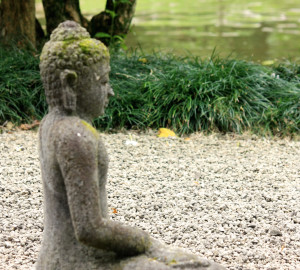In the on-season, athletes train for long periods, enter competitions and win (or lose). During the off-season, they rest, meditate, do some physical prep for the next season like stretching and weight training, study their craft and reconnect with friends and family. What athletes like Serena Williams and Christiano Ronaldo do in the off-season is just as important as what they do during the active training and competition season. The same can be said of teachers.
Like any athlete, a teacher uses his mind. His body. His emotions. His soul. Sometimes, at the end of the school year there isn’t much of the teacher left. And soon there will be a new crop of students who she wants to inspire, excite and teach. To energize the teaching self, like the pedagogical athlete you are, you need an off-season to recharge and reboot.
Some teachers have an off-season during the summer months and others need to or like to teach year-round. But I challenge you to create a personal off-season for yourself. Not just in teaching, but every profession should have an off-season. This can be an entire summer, a weekend, a day or a few hours. Embrace the idea that time away from teaching is just as important as the act of teaching itself. Time away from the thing you love may help you do it even better.
Below are 4 ways to recharge, refocus and reboot during your teaching off-season. Maybe you have time to try them all or you can pick one that works for your time and situation.
“Embrace the idea that time away from teaching is just as important as the act of teaching itself.”
- Rest
I don’t mean sleep. I mean a conscious effort to do nothing. Rest your body, your mind. This might involve sleep. But it can also be things like yoga or curling up with an enjoyable book. Anything that you find restful and enjoyable.
During the school year, you had student-teacher conferences, you mentored students, attended social events and all those faculty meetings. And all those faculty meetings. Like a good athlete rests sore muscles and heals injuries, you must rest your mind and body so that you might begin anew next semester.
- Unplug
We are always connected. The smartphone, the computer, the tablet. The constant flow of information takes a mental toll, as we react to each stimulus. Happiness, anxiety, anger…even for an instant, creates tiny roller coasters that add up. Unplug your personal devices. Turn off your alerts. Don’t check emails. This allows you to disengage.
Once disengaged, you can rest your mind, make space for focused thinking about your self, the act of teaching, strategies you might try next year. Unplugging also creates space to rest (see above).
- Un-teacher
One way to un-teacher is to become a student and learn something new. Take that floral arrangement course at the community center. The goal of un-teaching is to spend time in the role student (You should be doing this in the classroom). It’s like real world role-playing. You get to perform some of the actions, talks and attitudes of the students in your class. This brings you closer to the student experience so that you might examine the affects your our own teaching acts and talks.
“The goal of un-teaching is to spend time in the role of a student.”
As a student you can talk to other students and hear their reactions to the teacher. It’s a heady learning experience for teachers. And a role that is difficult for many teachers to play, as some teachers are always teachers. In school. In the home. At temple. But it’s difficult to learn new things about a role if you’re always in it. The idea is to step away, take a vacation from your self. By stepping away, your might see your self more clearly.
If you don’t want to take a formal class, you might un-teach by spending quality. time with children and young people, but not in a position of authority. Be a kid too. If the kids are little, get down on the floor. Finger paint. Talk with young people. And listen when they talk back. Laugh. Let some other adult ask you to stop laughing so loudly. Please clean up your mess.
- Return to your Beginnings
In one of my favorite poems, C.P. Cavafy’s “As Much as You Can,” the poet tells us that the very nature of life–talk, contact with others, relationships, the daily folly—can turn your life into something alien and burdensome. The very acts and talks of teaching–working with students, the triumphs, the misfortunes, working with colleagues—can make teaching seem alien and burdensome.
“The idea is to unburden your self and get back to the moment when you were enthusiastic about teaching and learning.”
You may be so affected by the micro events that make up the teaching life that you no longer know yourself. You might have even forgotten why you wanted to teach in the first place. In your off-season, go back to your beginnings. Was there a book that inspired you to teach? A movie? Read it again. Watch it again. Did someone encourage you to teach? If you can, talk to that person so that you might remember those attributes and talents that helped you understand that teaching was your thing.
To return to your beginnings, it helps if you’re rested and unplugged. The idea is to unburden your self and get back to the moment when you were enthusiastic about teaching and learning. With your body rested, your heart re-inspired, you might find that you can get back to the moment when you had a million teaching strategy ideas and couldn’t wait to start the teaching day.
Now you’ve got 4 ways to get to the new teaching you. I’m sure you can think of more ways for teachers to recharge and reboot. I hope will share them in the comments. #OutsideWork


